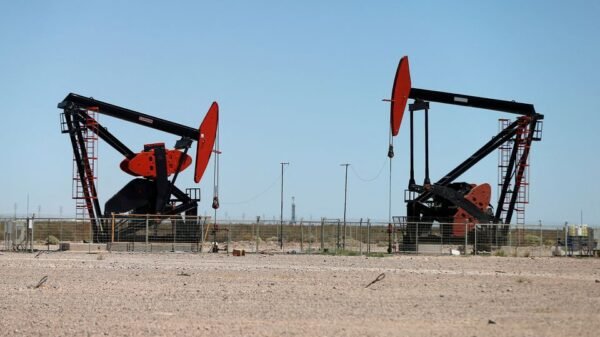Oil dipped on Tuesday as concerns about the U.S. debt ceiling pact dampened the risk-on attitude, and inconsistent statements from major producers muddied the supply outlook ahead of their weekend conference.
Brent crude futures slipped 50 cents, or 0.7%, to $76.57 a barrel by 0453 GMT after increasing 0.5% on Tuesday.
WTI crude fell 35 cents to $72.32, down 0.5% from Friday’s finish. U.S. holidays prevented settlement on Monday.
On Monday, some hard-right Republican lawmakers suggested they could oppose a deal to raise the U.S. debt ceiling, the world’s top oil importer. But, at the same time, Democratic President Joe Biden and Republican House of Representatives Speaker Kevin McCarthy remained confident.
Over the weekend, Biden and McCarthy reached a debt accord that must pass a divided Congress by June 5, when the Treasury Department says the government cannot make its financial obligations, disrupting financial markets.
“(The) contradictory statements from Republicans and lawmakers are keeping investors largely invested in the stand-off,” said Phillip Nova Market Analyst Priyanka Sachdeva.
The debt deadline is close to the June 4 meeting of the Organization of the Petroleum Exporting Countries (OPEC) and its allies, including Russia, known as OPEC+. Given the recent price collapse, the market is wondering if they would increase supply curbs.
“Investors have shifted their attention to the outcome of the OPEC+ meeting this weekend as there have been mixed messages from major oil producers,” said Fujitomi Securities Co Ltd analyst Toshitaka Tazawa.
Last Monday, Saudi Arabian Energy Minister Abdulaziz bin Salman advised short-sellers wagering that oil prices will decrease to “watch out,” suggesting OPEC+ may slash supply.
Russian oil officials and sources, including Deputy Prime Minister Alexander Novak, suggest the world’s third-largest oil producer may maintain output.
According to Reuters, Saudi Arabia, and other OPEC+ members slashed 1.2 million barrels per day (bpd) in April, bringing the total to 3.66 million bpd.
The April voluntary production cuts surprised the market. “Investors are extremely cautious before the final decision,” Haitong Futures analysts wrote.
Later this week, Chinese manufacturing and service sector statistics will be examined for gasoline demand recovery clues in the world’s top oil importer.










































Comment Template